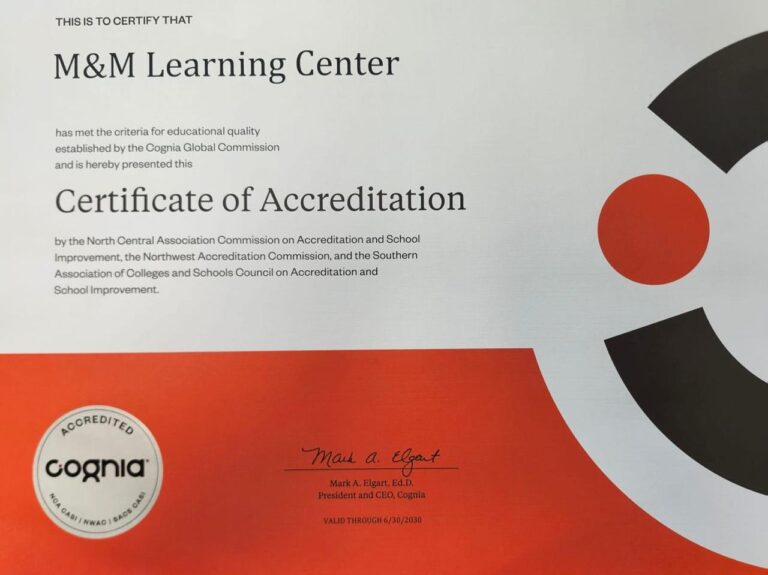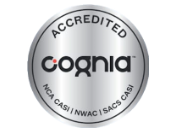
Accreditation and Why Its Important
Accreditation is a formal process by which a private school is evaluated and recognized for meeting specific standards of quality and excellence. This assessment is typically conducted by an external accrediting body, which reviews various aspects of the school’s operations, including its curriculum, faculty qualifications, facilities, student services, and overall educational effectiveness.
Accreditation ensures that the school maintains high academic standards and provides a quality education to its students. Accredited schools are often viewed more favorably by parents, students, and the community, enhancing the school’s reputation and credibility. The accreditation process encourages schools to engage in continuous self-evaluation and improvement, fostering an environment of ongoing development and excellence. Students graduating from accredited schools often have an easier time gaining admission to colleges and universities, as these institutions recognize the validity and rigor of the accredited school’s education. Furthermore, accreditation can make schools eligible for certain grants and funding opportunities that are only available to institutions that meet specific quality criteria. It also holds the school accountable to an external body, ensuring that it adheres to established educational standards and best practices.
Accreditation serves as a mark of excellence and trust, signaling that a private school is dedicated to providing high-quality education and continually striving for improvement.
FAQ's
1. What is accreditation?
Accreditation is a formal process by which a private school is evaluated and recognized for meeting specific standards of quality and excellence. An external accrediting body reviews various aspects of the school’s operations, such as curriculum, faculty qualifications, facilities, student services, and overall educational effectiveness.
2. Why is accreditation important for private schools?
Accreditation ensures that the school maintains high academic standards and provides a quality education to its students. It enhances the school’s reputation, encourages continuous improvement, and holds the school accountable to an external body. It also makes students more attractive to colleges and universities and may make the school eligible for certain grants and funding opportunities.
3. How does a school become accredited?
A school must apply to an accrediting body and undergo a thorough evaluation process. This involves a self-study conducted by the school, followed by an on-site visit from the accrediting body’s team, which assesses the school’s compliance with established standards. The school must then make any required improvements and submit to periodic reviews to maintain its accreditation status.
4. Who are the accrediting bodies for private schools?
There are various accrediting bodies for private schools, each with its own standards and processes. Some well-known accrediting organizations include the National Association of Independent Schools (NAIS), the Association of Christian Schools International (ACSI), and regional accrediting agencies like the New England Association of Schools and Colleges (NEASC).
5. What areas are evaluated during the accreditation process?
The accreditation process evaluates several key areas including the curriculum, faculty qualifications, facilities, student services, financial stability, governance, and the overall educational environment. The goal is to ensure that the school provides a high-quality education and operates efficiently and effectively.



